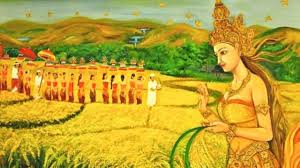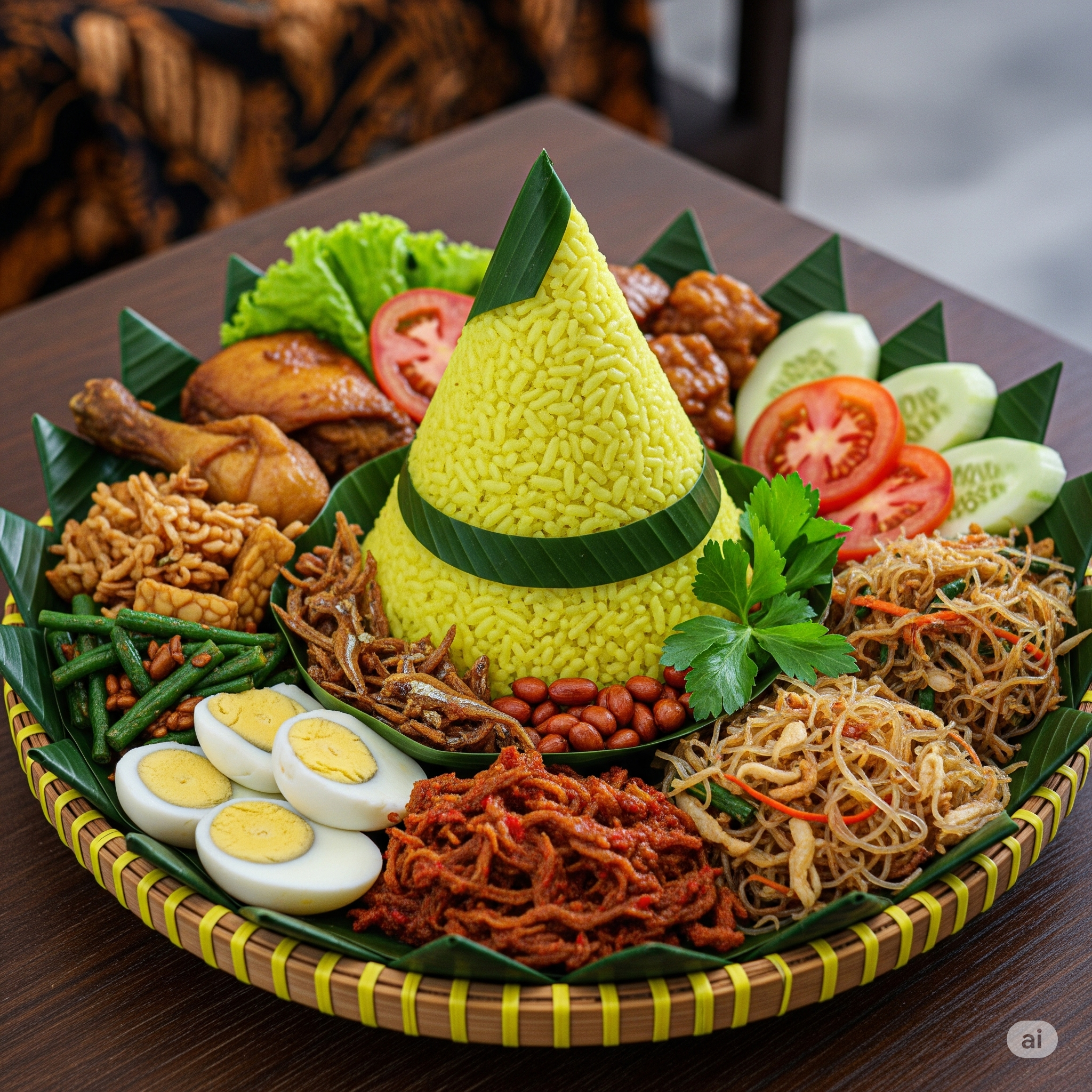The Role of Dewi Sri
Dewi Sri is an important figure in Javanese food culture, known as the goddess of rice. Many studies and old Javanese texts, like the Tantu Pagelaran manuscript, show her importance. These stories tell of her sad death and how her body became the source of all plants and animals needed for people to live. This story shows rice as more than food; it is sacred, and growing it is a way to show respect. Articles like “The Ecological Worldview of the Javanese…” by Trisna Kumala Satya Dewi and others explain how the Dewi Sri tradition helps people live in harmony with nature.
Food as a Symbolic Language
Scholarly articles from ResearchGate and UI Scholars Hub examine the deep symbolism present in Javanese food.
They emphasize that food is more than just sustenance; it is a cultural symbol with significant social meaning. Notable examples include:
The side dishes are also studied as reflections of the universe’s abundance.

The art about Dewi Sri’s story is a strong part of Indonesian tradition. It tells the legend of Dewi Sri, the goddess of rice and fertility. Paintings, sculptures, and performances show her role in bringing good harvests and helping the community. Each piece shares cultural beauty and shows the close connection between people and nature. This art helps people learn about respecting nature through Dewi Sri’s lasting symbol.
Historical and Linguistic Perspectives
Writings on Javanese food often trace its origins back to the pre-Islamic era.
Papers such as “Bhoma’s Kitchen: Food Culture and Food Symbolism in Pre-Islamic Java” analyze Old Javanese narrative poems (kakawin) to reveal the food culture and symbolism of that time. These texts demonstrate that even in ancient times, Javanese society had a well-developed understanding of meals and that the eating of certain foods, especially meat in martial contexts, held ritual importance.
In addition, linguistic studies like the article “Revisiting the binding designation between source and target domains in the creation of Javanese food names metaphors” explore how Javanese food names are often metaphorical.
These names are frequently based on similarities in shape, size, function, or even sound, highlighting the close ties between language, culture, and cuisine.
also read this The Most Unique Food From Central of Java

